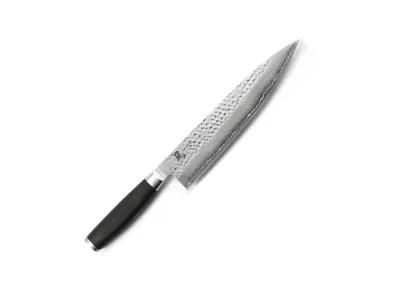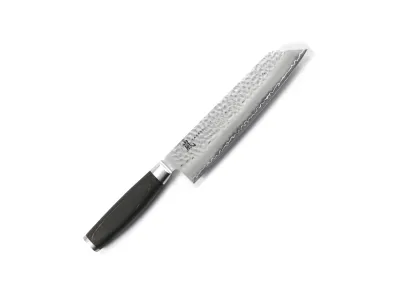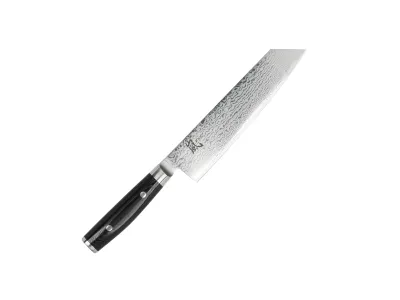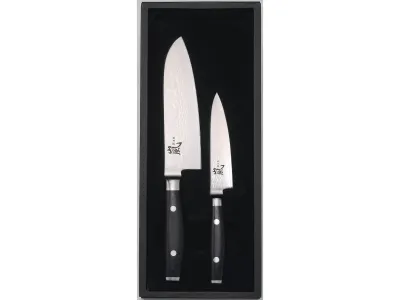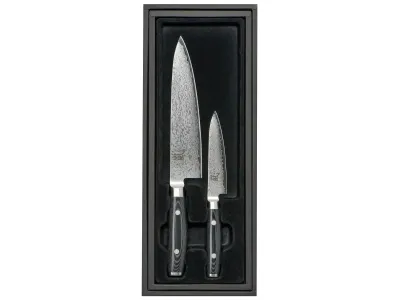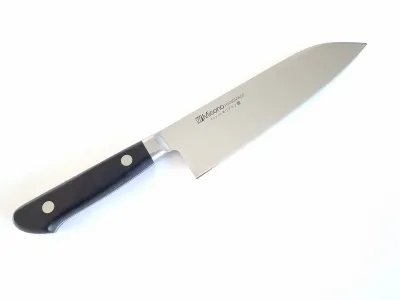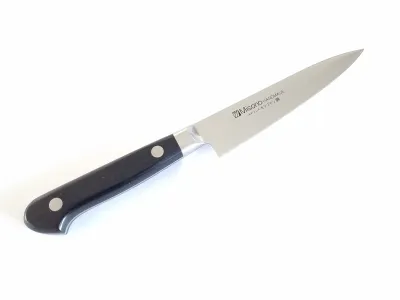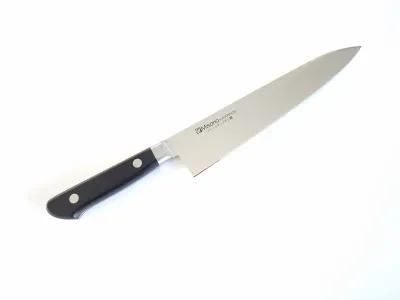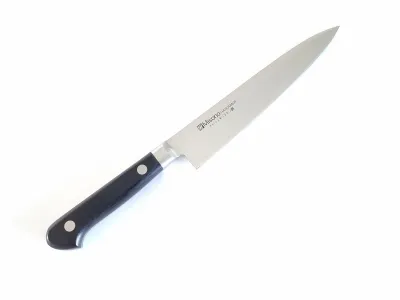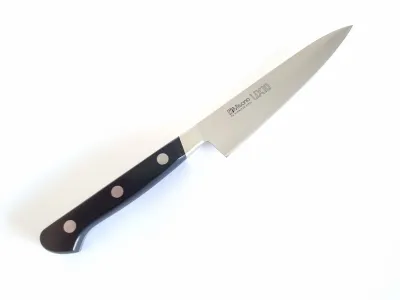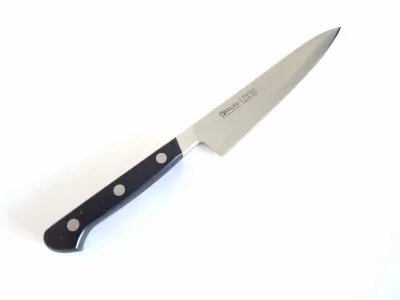Japanese-style knives
Japanese-style knives bring Japanese-inspired profiles, thin geometry, and clean cutting performance to everyday food prep. This collection includes both authentic knives made in Japan and knives made elsewhere that follow Japanese-style blade shapes and Wa/Yo handle designs. Explore popular Japanese knife profiles such as Gyuto (chef’s knife), Santoku, Kiritsuke, Nakiri (vegetable knife), Petty/Utility, and Paring knives—built for precise slicing, chopping, mincing, and fine detail work. You’ll find a range of steels—from VG10 stainless and Aogami No 2 (Blue Steel 2) carbon steel to high-hardness options like ZDP-189, plus premium lines made with Swedish stainless steel (e.g., Misono). Country of manufacture and full steel specifications are listed for every knife, so you can compare confidently. Choose the blade length and balance you prefer, pick an ergonomic handle that fits your grip, and match the knife to your cutting board and ingredients for controlled, effortless prep.

